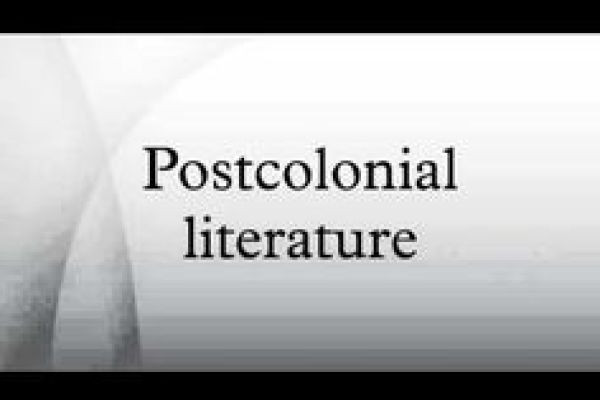Postcolonial Literature: Examination of Identity, Power, and Resistance
Introduction
Postcolonial literature is a body of work that examines the cultural, political, and social impacts of colonialism and the struggles for identity, power, and resistance that arise in its aftermath. Emerging in the wake of decolonization, postcolonial literature provides a platform for voices marginalized by colonial powers, offering perspectives on the complexities of identity, the dynamics of power, and the enduring legacy of resistance against colonial domination. This genre of literature seeks to deconstruct colonial narratives, challenge dominant ideologies, and reclaim the histories, cultures, and identities of colonized peoples. In this essay, we will explore the key themes of identity, power, and resistance in postcolonial literature, examining how these themes are articulated through various works and authors.
Identity in Postcolonial Literature
One of the central themes in postcolonial literature is the exploration of identity, particularly the complex and often conflicted identities of individuals and communities in postcolonial societies. Colonialism imposed foreign cultural, religious, and linguistic norms on colonized peoples, leading to a fragmentation of identity. Postcolonial literature seeks to address this fragmentation by exploring the ways in which colonized individuals negotiate their identities in the face of cultural dislocation, hybridity, and the legacies of colonial rule.
The concept of hybridity, as articulated by theorists like Homi K. Bhabha, is crucial to understanding postcolonial identity. Hybridity refers to the cultural blending and mixing that occurs as a result of colonial encounters, leading to the creation of new, hybrid identities. This blending is often seen as both a source of strength and tension, as individuals navigate their dual or multiple cultural affiliations. In postcolonial literature, hybridity is often depicted as a site of negotiation, where characters must reconcile their indigenous heritage with the imposed culture of the colonizers.
A prominent example of the exploration of identity in postcolonial literature is Chinua Achebe’s novel "Things Fall Apart." The novel portrays the Igbo society of Nigeria before and during the early stages of British colonization. The protagonist, Okonkwo, struggles with the erosion of his traditional identity as colonial forces impose new cultural and religious practices on his community. Achebe’s narrative captures the tension between the preservation of indigenous identity and the pressures to conform to the colonizer’s culture. Through Okonkwo’s tragic fate, Achebe illustrates the profound impact of colonialism on individual and collective identity, highlighting the psychological and cultural disintegration that often accompanies colonial domination.
Similarly, Salman Rushdie’s "Midnight’s Children" explores the theme of identity in the context of postcolonial India. The novel’s protagonist, Saleem Sinai, embodies the fractured and hybrid identity of postcolonial India, as he is born at the exact moment of the country’s independence from British rule. Saleem’s life story, intertwined with the history of the nation, reflects the complexities of identity in a newly independent country struggling to reconcile its colonial past with its present and future. Rushdie’s use of magical realism further emphasizes the fluidity and ambiguity of postcolonial identity, as Saleem’s experiences blur the boundaries between history, memory, and myth.
Power Dynamics in Postcolonial Literature
Power dynamics are another central theme in postcolonial literature, as these works often explore the unequal power relationships between colonizers and the colonized. Colonialism was fundamentally a system of domination, where the colonizers exerted control over the political, economic, and cultural lives of the colonized peoples. Postcolonial literature seeks to expose and critique these power imbalances, revealing the ways in which colonial power structures continue to influence postcolonial societies.
Edward Said’s concept of Orientalism is particularly relevant to the examination of power in postcolonial literature. Orientalism refers to the way in which Western cultures have historically represented and constructed the East as exotic, backward, and inferior, thereby justifying colonial domination. Said argues that these representations are not neutral but are deeply embedded in the power structures of colonialism. Postcolonial literature often challenges Orientalist stereotypes, offering alternative narratives that resist the dehumanizing portrayals of colonized peoples and assert their agency and humanity.
Jean Rhys’s novel "Wide Sargasso Sea" is a powerful example of how postcolonial literature engages with the theme of power. The novel is a prequel to Charlotte Brontë’s "Jane Eyre," offering a reimagined backstory for the character of Bertha Mason, the "madwoman in the attic." Rhys’s novel shifts the perspective to Bertha, who is renamed Antoinette Cosway, a Creole woman in Jamaica. Through Antoinette’s story, Rhys critiques the colonial power dynamics that underpin the original narrative, revealing how racial and gendered power structures contribute to Antoinette’s eventual madness. The novel exposes the devastating effects of colonialism on individuals, particularly women, who are doubly marginalized by both colonial and patriarchal systems of power.
Power dynamics are also central to Ngũgĩ wa Thiong’o’s "A Grain of Wheat," which is set in Kenya during the Mau Mau uprising against British colonial rule. The novel explores the different ways in which power is wielded and resisted, both by the colonizers and the colonized. Ngũgĩ delves into the complexities of resistance, depicting how colonial power structures create divisions within the colonized community and how individuals navigate these power dynamics in their struggle for independence. The novel’s fragmented narrative structure reflects the fragmented nature of postcolonial identity and history, emphasizing the contested and multilayered nature of power in colonial and postcolonial contexts.
Resistance in Postcolonial Literature
Resistance is a defining theme of postcolonial literature, as these works often depict the various forms of resistance that colonized peoples employ against colonial domination. Resistance can take many forms, from armed struggle and political activism to cultural preservation and the reclaiming of indigenous languages and traditions. Postcolonial literature celebrates the resilience and agency of colonized peoples, challenging the narratives of passivity and victimhood often associated with colonial subjects.
Frantz Fanon’s work on decolonization, particularly his book "The Wretched of the Earth," is foundational to understanding the theme of resistance in postcolonial literature. Fanon argues that decolonization is a violent process, as it involves the dismantling of deeply entrenched colonial power structures. He emphasizes the importance of reclaiming cultural identity and history as a form of resistance against the psychological and cultural oppression of colonialism.
Toni Morrison’s "Beloved" is a seminal work that explores the theme of resistance in the context of American slavery, a system deeply intertwined with colonialism. The novel tells the story of Sethe, an escaped slave who is haunted by the ghost of her dead daughter, whom she killed to prevent her from being recaptured into slavery. Through Sethe’s story, Morrison explores the horrors of slavery and the enduring impact of this trauma on African American identity. The act of resistance in the novel is both literal and symbolic, as Sethe’s actions represent a refusal to submit to the dehumanizing power of slavery. Morrison’s use of magical realism and fragmented narrative structure further emphasizes the complexity of resistance, as the novel blurs the lines between the past and present, the real and the supernatural.
Resistance in postcolonial literature is also often linked to the reclaiming of language and narrative. Ngũgĩ wa Thiong’o, in his essay "Decolonising the Mind," argues that language is a key battleground in the struggle for cultural and political liberation. He advocates for the use of indigenous languages in literature as a way to resist the cultural imperialism of colonial languages. Ngũgĩ’s own novel "Petals of Blood," written in Gikuyu, is an example of this form of resistance, as it challenges the dominance of English in African literature and asserts the importance of indigenous voices and perspectives.
In Salman Rushdie’s "The Satanic Verses," resistance takes the form of challenging religious and cultural orthodoxy. The novel, which blends elements of magical realism with a critique of religious fundamentalism, sparked controversy and was seen by many as a bold act of resistance against oppressive ideologies. Rushdie’s use of multiple narratives and perspectives reflects the plurality of postcolonial identities and the ongoing struggle for self-definition and freedom from imposed narratives.
Conclusion
Postcolonial literature is a rich and diverse body of work that engages deeply with the themes of identity, power, and resistance. Through the exploration of hybrid identities, the critique of colonial power dynamics, and the celebration of resistance in its various forms, postcolonial literature provides a powerful commentary on the lasting impact of colonialism on individuals and societies. By reclaiming narratives, languages, and histories, postcolonial writers challenge the dominant discourses of the colonial past and assert the agency and humanity of those who have been marginalized. The ongoing relevance of postcolonial literature lies in its ability to speak to contemporary struggles for identity, justice, and liberation, making it a vital and dynamic field of study in today’s globalized world.



